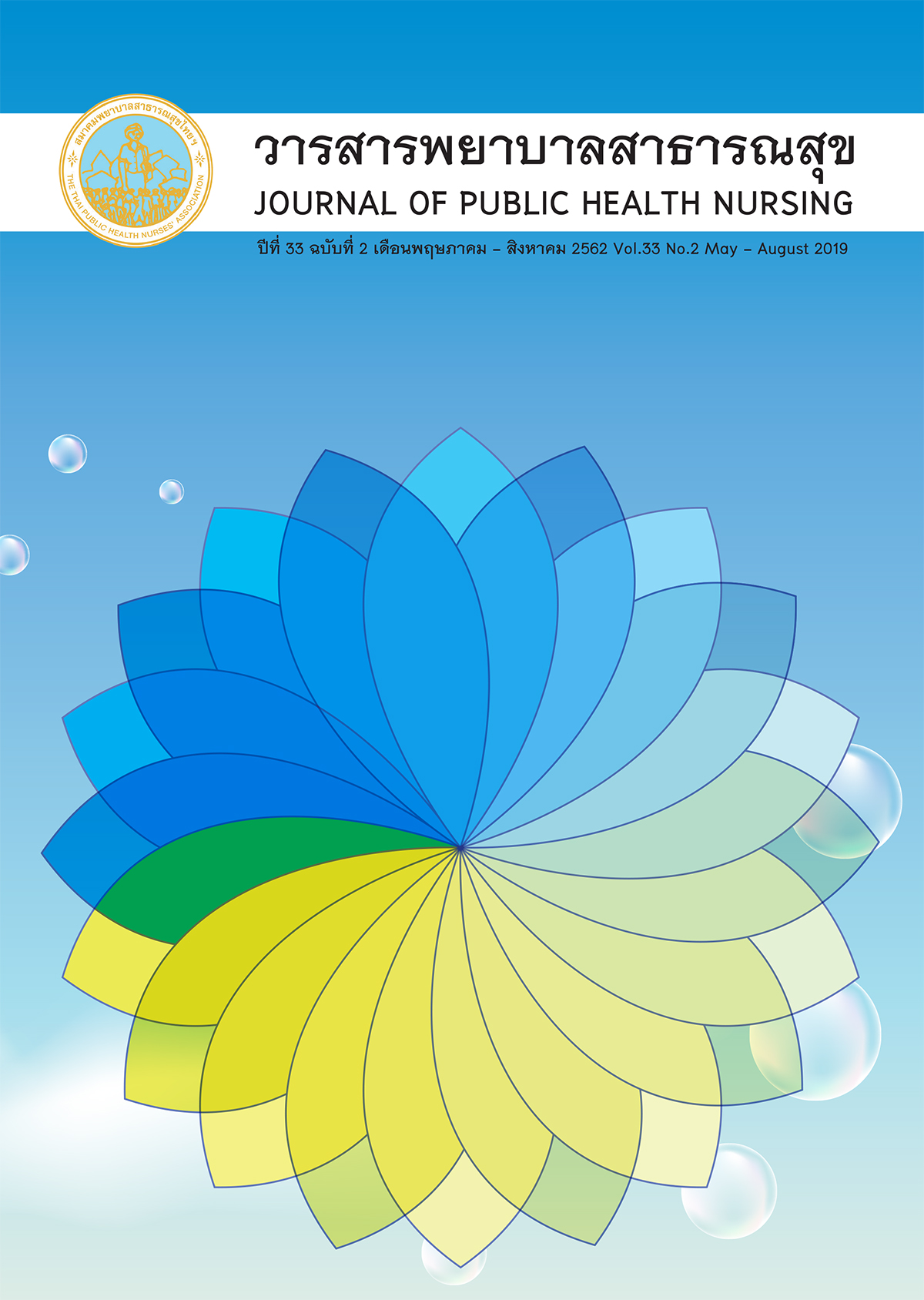Effects of A Tonkla Kwamdee Program on Emotional Intelligent among Primary School Children under the Office of the Basic Education Commission in Pathumthani Province
Keywords:
elementary school students, Tonkla Kwamdee Program, emotional intelligenceAbstract
Every people who have become success and happiness must have intelligence quotient and emotional quotient at the sametime, especiallyin school age child whose in cognitive development period.This quasi-experimental research aimed to investigate the effects of A TonklaKwamdee Program on emotional intelligent among primary school children under the Office of the Basic Education Commission in Pathumthani province. The sample composed of 60 elementary school students (Prathom 4-5) in Pathumthani Province. The experimental and control groups consisted of 30 students each. The research was carried out from June 1, 2015 to February28, 2016, and this program was monthly implemented. The instruments were the TonklaKwamdee Program, and the emotional intelligence evaluation. The data were analyzed using percentage, mean, standard deviation, paired t-test and independent t-test.The research findings were as follows: The mean score of the emotional quotient of the experimental group student after received the TonklaKwamdee Program were significantly higher than before at .05 levels. The mean score of the emotional quotient of the experimental group student after received the A TonklaKwamdee Program were significantly higher than the control group at the .05 levels.
The result presented that the student had better emotional intelligence due to the effectiveness of the TonklaKwamdee Program. Based on the finding, therefore, it recommended that nurses, teachers, student leaders, and others should apply the TonklaKwamdee Programe for sustainability development.
References
Department of Mental Health, Ministry of Public Health. EQ: Emotional Quotients. Nonthaburi. Department of Mental Health, Ministry of Public Health; 2007
Ministry of Public Health. Strategies, indicators, and approach of data storage, Ministry of Public Health in Fiscal year 2016. Bangkok: Office of Policy and Strategy, Ministry of Public Health; 2018.
Department of Mental Health, Ministry of Public Health. Thai students Good Intelligent Quotients: IQ and Good Emotional Quotients: EQ of confident. Bangkok: Department of Mental Health, Ministry of Public Health; 2016.
Mongkol A, Visanuyothin T, Chanarong P, Pavasuthiapaisit C, Panyawong W. IQ distribution of Thai students. Journal of Mental Health of Thailand 2012; 20: 90-102. (in Thai)
Siriwan P, Karnsunaphat B, Usanee P, et al. Developing a Model for Enhancing the Goodness, Smartness and Happiness of Thai Primary School Students in Songkhla Province: A Participation Action Research Study. Online Songklanagarind Journal of Nursing 2016; 36 (3): 150-71. (in Thai)
Ministry of Public Health. Strategies, indicators, and approach of data storage, Ministry of Public Health in Fiscal year 2016. Bangkok: Office of Policy and Strategy, Ministry of Public Health; 2018.
Bandura A. Self-efficacy: The Exercise of control. New York: W.H. Freeman and Company; 1997.
Glass GV, Kenneth DH. Statistical methods in education and psychology. (3rd ed.). United States: Simon and Schuster Company. United States; 1996.
Narunest C. Effects of emotional quotient development program by applying principles of Buddhist (Yonisomanasikara) for high school students. Journal of Public Health Nursing 2014; 28(1): 83-101. (in Thai)
Kohlberg L. Stage and sequence: The cognitive-development approach to socialization. In D. Goslin (Ed.), Handbook of socialization theory. New York: Rand McNally; 1969.
Chantarat P. Using group activities to develop emotional quotients of Prathom Suksa 2 students, Ban on Klang School, Chiang Mai province. Master’s Thesis in Education, Department of Educational Psychology and Guidance, Graduate School Chiang Mai University; 2007. (in Thai)
Aree M. Effect of group activity on emotional quotient of Mattayom Suksa 6 students at Chonkanyanukoon School, Chonburi Province: A preliminary study. HCU Journal 2013; 16 (32): 53-72. (in Thai)
Supawadee B. Group Activities in School, Songkhla Province: Department of Guidance and Educational Psychology, Faculty of Education, Srinakharinwirot University; 1984.
Rogers C. Carl Roger on Encounter Group. New York: Harper & Row; 1970.
Bunga W, Supanee S. The Follow Up of Teacher Quality Development Project by Using Coaching and Mentoring System: In-Service Teacher of Thai language Learning in Sukhothai Primary Educational Service Area Office 2. Journal of Education Naresuan University 2013; 15(4): 165-72. (in Thai)
Downloads
Published
How to Cite
Issue
Section
License
บทความที่ตีพิมพ์และแผนภูมิรูปภาพถือเป็นลิขสิทธิ์ของวารสารพยาบาลสาธารณสุข (Thai Public Health Nurses Association)







